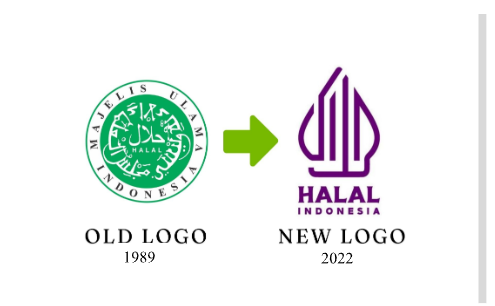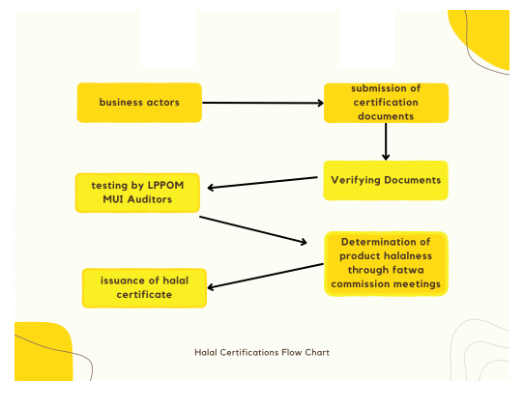LAW OF THE REPUBLIC OF INDONESIA NUMBER 33 OF 2014 CONCERNING HALAL PRODUCT GUARANTEE
What is Halal Certification and Why You Need It?
Halal certification is the process of examining food, medicine and cosmetics products by the Indonesian Ulema Council (MUI) to obtain a halal certificate (SH). Indonesia is a country with a majority Muslim population, which is around 87.18 percent of the total population (BPS, 2010). Therefore, the demand for halal products is very high. The implementation of Halal Certification in Indonesia is considered very important to ensure the security, comfort, safety, and availability of halal products for the entire community, especially for Muslims.
The context of halal is not only limited to consumption, but also includes the entire production process and services involved in the supply chain. The halal industry should cover all aspects of operations, including packaging, marketing, manufacturing, logistics, distribution, maintenance, slaughtering, and various activities from start to finish.
Halal Certification as a Way to Enter Indonesian Vast Market
Breaking into the Indonesian market can be a golden opportunity for businesses worldwide, especially given the country’s vast population of over 270 million people. What many companies might not realize, however, is the pivotal role that halal certification can play in this process. With about 87.18% of Indonesians identifying as Muslim, there’s a robust demand for products that align with Islamic dietary laws. Halal certification isn’t just a religious formality—it’s a mark of quality and safety that resonates deeply with consumers, building trust and brand loyalty in a highly competitive market.
In Indonesia, halal certification is more than just a label. Overseen by the Indonesian Ulema Council (MUI), the certification process is rigorous, ensuring that products meet strict halal standards from ingredients to production methods. This thorough inspection reassures consumers that they can trust the products they purchase. For businesses, gaining this certification can set them apart from competitors, showcasing a commitment to ethical practices and high-quality standards. It’s not just about meeting religious guidelines—it’s about embracing a comprehensive quality assurance process that can enhance a brand’s reputation.
But the benefits of halal certification extend beyond food and beverages. The certification opens doors across various sectors including pharmaceuticals, cosmetics, logistics, and even tourism. As the Indonesian government pushes to position the country as a global halal hub, international businesses that achieve halal compliance can tap into an ever-expanding market. By aligning with halal standards, companies can appeal to a broader audience, ensure their products meet local expectations, and gain a significant competitive edge. So, whether you’re in the business of beauty, health, food, or travel, halal certification might just be your ticket to thriving in Indonesia’s dynamic and diverse market.

Halal Certification Flow Chart

Source:
Journal of Halal Product and Research, Faridah, Durrotul Hayyun, “HALAL CERTIFICATION IN INDONESIA; HISTORY, DEVELOPMENT, AND IMPLEMENTATION”.
Sopa, “SERTIFIKASI HALAL DI INDONESIA PASCA DISAHKANNYA UNDANG-UNDANG JAMINAN PRODUKHALAL: PELUANG DAN TANTANGAN”.

